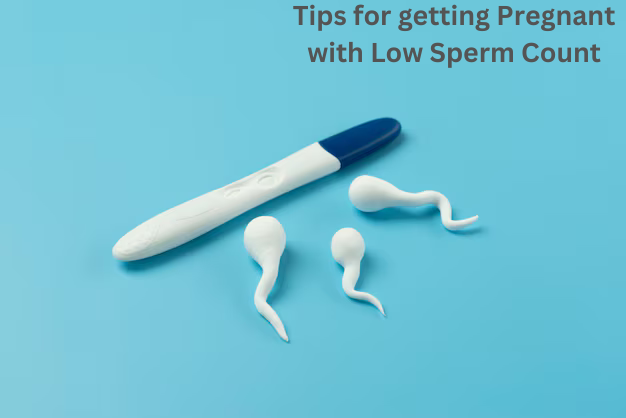Tips for Getting Pregnant with Low Sperm Count
Low sperm count, or oligospermia, is a condition where the number of sperm in a man’s semen is lower than the average required for conception. This can be a challenging hurdle for couples trying to conceive, but with the right strategies, treatments, and lifestyle changes, achieving pregnancy is still possible. At New World Fertility Centre in Delhi, we specialize in helping couples overcome such challenges and turn their dreams of parenthood into reality.
Understanding Low Sperm Count
Low sperm count is characterized by a lower-than-average number of sperm in semen. Various factors can contribute to this condition, including:
Hormonal imbalances: Hormonal issues can affect sperm production.
Varicocele: Enlarged veins in the scrotum can impair sperm quality.
Infection: Infections in the reproductive tract can damage sperm.
Environmental factors: Exposure to toxins, radiation, or extreme heat can negatively impact sperm.
Lifestyle factors: Smoking, excessive alcohol consumption, and drug use can reduce sperm count.
Genetic factors: Certain genetic conditions can affect sperm production.
Strategies to Improve Sperm Count and Fertility
1. Lifestyle Modifications:
Healthy Diet: A balanced diet rich in fruits, vegetables, whole grains, and lean proteins can support overall health and sperm production.
Regular Exercise: Moderate physical activity can improve blood flow to the reproductive organs.
Weight Management: Maintaining a healthy weight can help regulate hormone levels.
Stress Reduction: Practice relaxation techniques like yoga, meditation, or deep breathing to reduce stress.
Limit Alcohol and Tobacco: Excessive alcohol consumption and smoking can negatively impact sperm quality.
Avoid Excessive Heat: Limit exposure to heat sources like hot tubs and saunas.
2. Medical Interventions:
Hormone Therapy: To address hormonal imbalances affecting sperm production.
Antibiotics: To treat infections that may be contributing to infertility.
Surgery: To correct varicocele or other structural abnormalities.
3. Assisted Reproductive Technologies (ART):
Intrauterine Insemination (IUI): Sperm is directly placed into the uterus during ovulation.
In Vitro Fertilization (IVF): Eggs are fertilized with sperm in a laboratory and then transferred to the uterus.
Intracytoplasmic Sperm Injection (ICSI): A single sperm is injected directly into an egg.
Conclusion
Low sperm count doesn’t mean the end of your journey toward parenthood. With the right lifestyle changes, medical treatments, and support, conception is possible. If you or your partner are struggling with low sperm count, don’t hesitate to reach out to New World Fertility Centre in Delhi for expert guidance and treatment options.
Frequently Asked Questions (FAQs)
1. What is considered a low sperm count?
Low sperm count, also known as oligospermia, is defined as fewer than 15 million sperm per milliliter of semen according to the World Health Organization (WHO).
2. Can I get my partner pregnant if I have a low sperm count?
Yes, it’s possible to conceive naturally with a low sperm count, but it may take longer. If conception doesn’t occur naturally, assisted reproductive technologies like IUI, IVF, or ICSI can significantly improve your chances.
3. What are the main causes of low sperm count?
The common causes include:
- Lifestyle factors (smoking, alcohol, stress, obesity).
- Medical issues (hormonal imbalances, varicocele, infections).
- Exposure to heat, radiation, or environmental toxins.
- Nutritional deficiencies or poor diet.
4. What lifestyle changes can improve low sperm count?
Some effective lifestyle changes include:
- Quitting smoking and limiting alcohol consumption.
- Maintaining a healthy weight and exercising regularly.
- Eating a nutrient-rich diet with antioxidants, zinc, and omega-3 fatty acids.
- Reducing stress and avoiding heat or toxins.
5. What medical treatments are available for low sperm count?
Depending on the severity, treatments include:
- IUI (Intrauterine Insemination): Placing washed sperm directly into the uterus.
- IVF (In Vitro Fertilization): Fertilizing eggs in a lab and transferring embryos into the uterus.
- ICSI (Intracytoplasmic Sperm Injection): Injecting a single healthy sperm into an egg.
- Surgical correction for conditions like varicocele.

 Nov-23-2024
Nov-23-2024